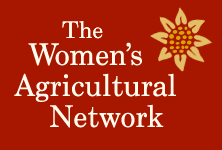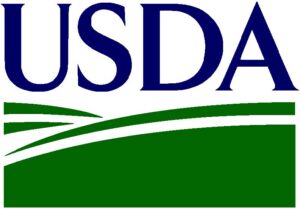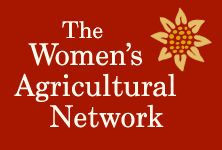 Editor’s Note: This post comes from University of Vermont Extension agricultural economist Bob Parsons, whose research and extension work focuses on agricultural financial management and farm succession issues.
Editor’s Note: This post comes from University of Vermont Extension agricultural economist Bob Parsons, whose research and extension work focuses on agricultural financial management and farm succession issues.
I want to clarify a point about the proposed elimination of the federal estate tax.
By current law, estates under $5.49 million are not subject to estate taxes. And with a bit of planning, a couple can have $10.98 million of an estate not subject to estate taxes. And the current level is pegged it inflation so the amount subject to tax will move with the economy.
One point to remember is that estates taxes are applied to the net estate, not the gross estate. So it’s the amount after all bills have been paid. An individual with $7 million in assets but also with $2 million in debt has a net estate of $5 million, none subject to federal estate taxes.
The American farmer has always been a poster child for efforts to eliminate the estate taxes. But very few farm families are subject to the estate tax.
What usually is not mentioned is the possible elimination of the step up in basis that benefits all individuals, especially individuals who invest in business assets held a long time and slowly increase in value. Sounds like farm land? Perfect example!
So what is basis? Basis is the book value of an asset, generally the purchase price less depreciation. Basis is important in determining the capital gains tax one would owe if they sold an asset. You but a tractor for $20,000 20 years ago. You depreciate the tractor on your taxes so now the book value is zero. But the tractor still works. You sell the tractor for $10,000 today. The full amount is taxable because the book value is zero and you have made a gain that is taxed as capital gains.
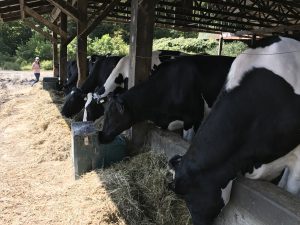 Same thing for cows. Most cows are farm bred and expenses are written as incurred. The cow has a tax basis of zero. Sell a cow for beef or dairy and usually the full amount is subject to capital gains tax. These are normal tax event in a farm business.
Same thing for cows. Most cows are farm bred and expenses are written as incurred. The cow has a tax basis of zero. Sell a cow for beef or dairy and usually the full amount is subject to capital gains tax. These are normal tax event in a farm business.
The step up in basis is a part of the estate tax code. At the time of death, assets are distributed by will or in a trust as directed by the individual and valued at current market value. You may inherit some valuable antique, stamp collection, or cows, farmland or tractor. What is the tax situation? If the estate was valued under $5.49 million, there is no federal estate tax.
But what about the individual who inherited the property? It works like this. You inherit 100 cows valued at $1600 per cow, totaling $160,000. You do not owe taxes unless you sell them above the basis. What is the basis? A reputable appraiser put the value of the cows at $1600 each at the time of death. So that is the cows new basis, no matter whether their basis was $0 or $1200. The person who inherited the property can sell the cows for any amount up to $160,000 and pay nothing in capital gains tax.
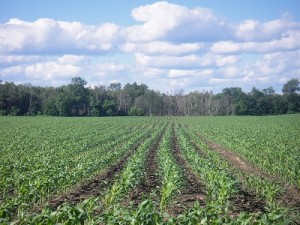 How about land, generally the highest value farm asset? Here is the big impact. Buy a farm 30 years ago for $50,000. Can’t be depreciated so book value remains at $50.000. Today the farm is worth $800,000, farms biggest asset. The farmer dies owning the farm. After taking an inventory of all assets and paying off debts, the farmer’s estate is worth $3 million. Not subject to estate taxes so that is no worry.
How about land, generally the highest value farm asset? Here is the big impact. Buy a farm 30 years ago for $50,000. Can’t be depreciated so book value remains at $50.000. Today the farm is worth $800,000, farms biggest asset. The farmer dies owning the farm. After taking an inventory of all assets and paying off debts, the farmer’s estate is worth $3 million. Not subject to estate taxes so that is no worry.
Now, lets look at the heir’s situation. The farmer leaves the farm to his daughter who has worked with her parents for years. She now owns the farm and a tax basis of $800,000. She can sell the land for $800,000 and not pay one penny in capital gains tax.
Now let’s assume the estate tax is eliminated, and with it the step up in basis. The farm is now valued at $800,000 but has a basis of $50,000. Daughter does not have any children planning to take over the farm. She is getting chronic aches and pains, and decides to retire from farming. Has an offer of $800,000 and sells the farm. Capital gains goes like this. Sales price minus basis = taxable capital gain. $800,000 minus $50,000 = $750,000. Capital gains tax runs 15-20% depending on the individual. The daughter now faces capital gains tax of at least $112,500 or as much as $150,000. All due to elimination of the estate tax.
This is what could happen if the estate tax is eliminated. The contrast is quite clear.
- People with estates over $5.49 million will not have to worry about estate taxes.
- Everyone with estates under $5.49 million will not have to worry about estate taxes. They didn’t have this worry before.
- Everyone loses the step up in basis.
Who gains and who loses? Depending on your opinion, who wins and who loses may be debatable. But when you hear about the disadvantages of the estate tax, don’t forget that the free step up in basis gives a huge benefit to families with lower valued estates. So be cautious when you hear debates on the estate tax because you rarely hear about elimination of the step up in basis, which can benefit farmers as well as people who inherit a valuable antique or stamp collection.



 Same thing for cows. Most cows are farm bred and expenses are written as incurred. The cow has a tax basis of zero. Sell a cow for beef or dairy and usually the full amount is subject to capital gains tax. These are normal tax event in a farm business.
Same thing for cows. Most cows are farm bred and expenses are written as incurred. The cow has a tax basis of zero. Sell a cow for beef or dairy and usually the full amount is subject to capital gains tax. These are normal tax event in a farm business. How about land, generally the highest value farm asset? Here is the big impact. Buy a farm 30 years ago for $50,000. Can’t be depreciated so book value remains at $50.000. Today the farm is worth $800,000, farms biggest asset. The farmer dies owning the farm. After taking an inventory of all assets and paying off debts, the farmer’s estate is worth $3 million. Not subject to estate taxes so that is no worry.
How about land, generally the highest value farm asset? Here is the big impact. Buy a farm 30 years ago for $50,000. Can’t be depreciated so book value remains at $50.000. Today the farm is worth $800,000, farms biggest asset. The farmer dies owning the farm. After taking an inventory of all assets and paying off debts, the farmer’s estate is worth $3 million. Not subject to estate taxes so that is no worry.